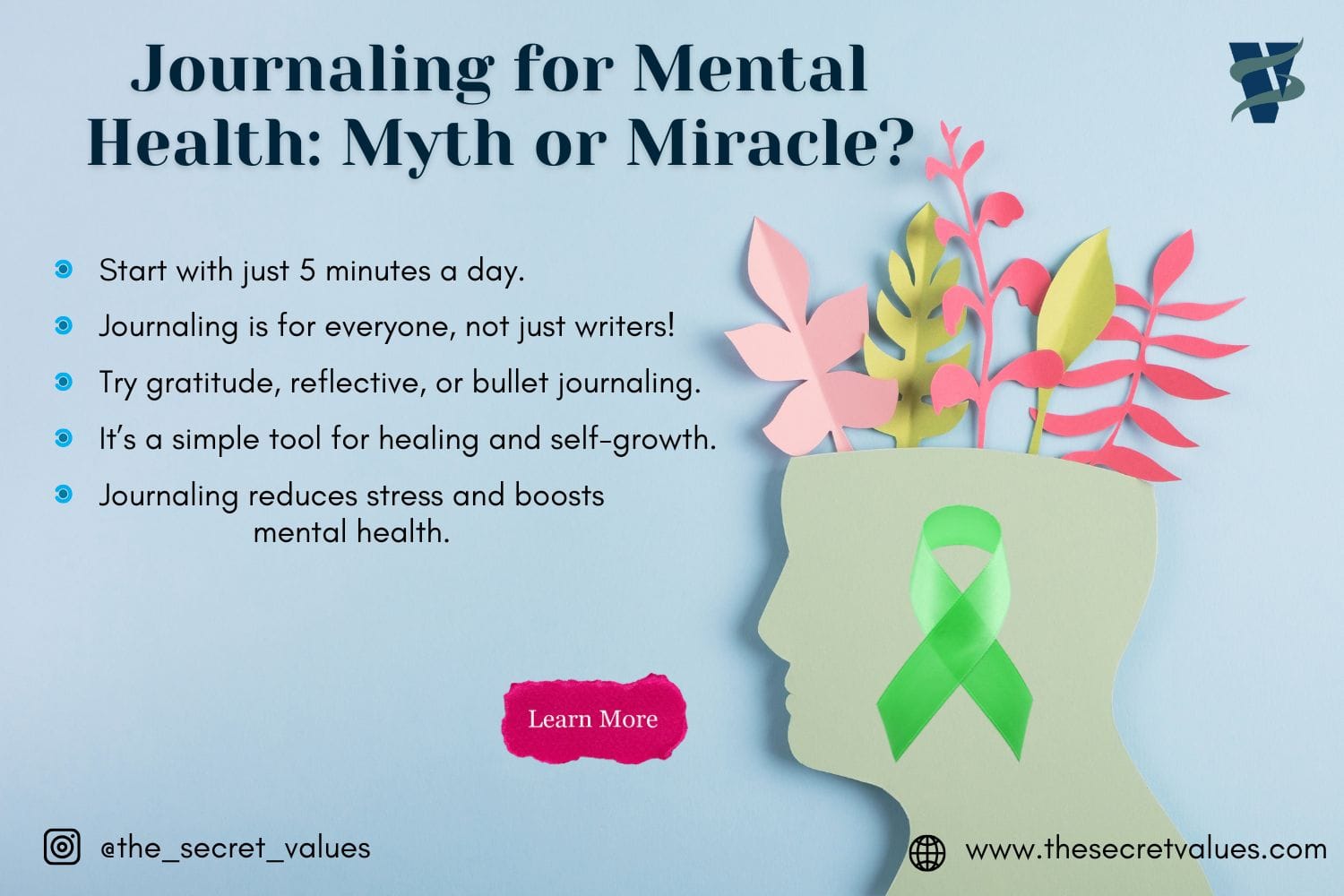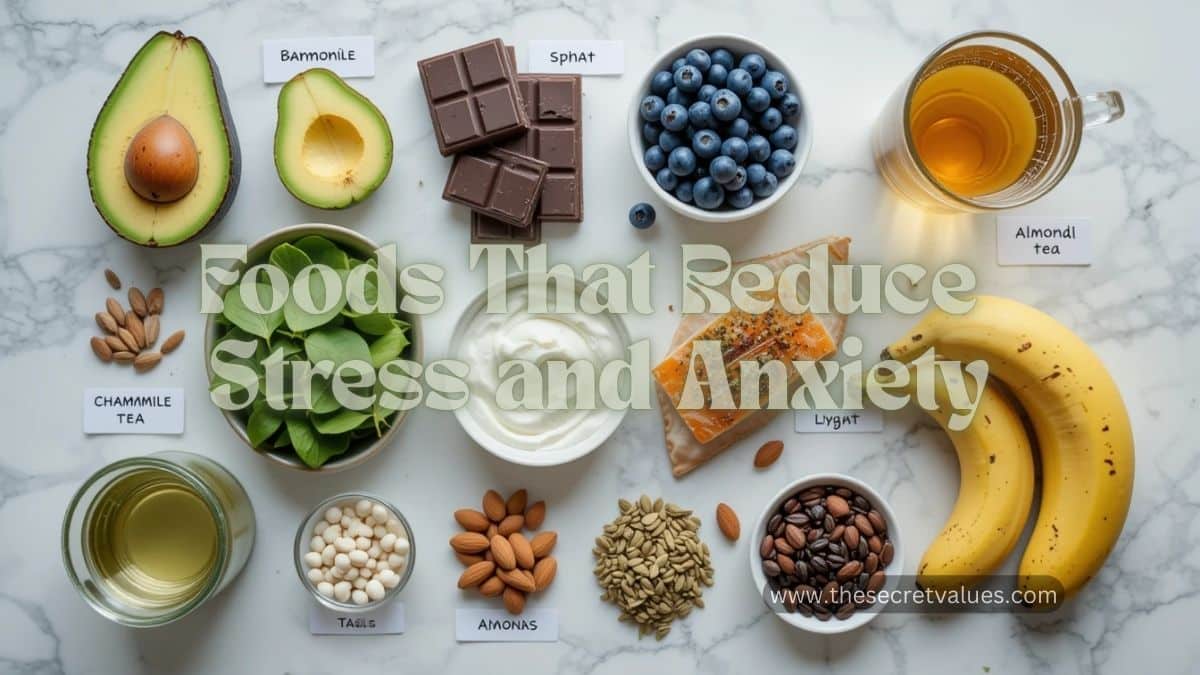Introduction
Have you ever felt like your mind is a whirlwind of thoughts and emotions overwhelming you? Journaling for mental health might be the answer you’re looking for. This simple yet powerful practice involves putting pen to paper (or fingers to keyboard) to sort through your feelings, release stress, and gain clarity.
But here’s the larger question: Is journaling good for your mental health, or is it just another trendy, overhyped byproduct of social media? So, please read along with me as I explore the transformational power of journaling and why so many mental health professionals promote it. By the end, you’ll discover how this is your escape hatch from mental silt.
The Origins of Journaling
Ancient practices of self-expression
Journaling has existed for many years. Ancient civilisations, such as those in Egypt and Rome, documented their experiences and emotions on materials like papyrus or clay tablets.
Evolution of journaling as a therapeutic tool
In the 20th century, psychologists began examining journaling as a strategy for coping with emotions and trauma. Today, journaling is a common component of mental health practices.
How Journaling Impacts Mental Health
Connection Between Writing and Emotional Health
According to studies, journaling could drastically enhance emotional health by lessening symptoms of depression and anxiety. Writing acts to disentangle feelings, much like pulling apart a knot of string.
Stress Relief and Mental Clarity
When life feels overwhelming, journaling offers a safe space to pour out your thoughts. It’s like hitting the “refresh” button for your brain!
Types of Journaling for Mental Health
Gratitude Journaling
Expressing gratitude changes one’s perspective. Journaling three things that bring a person joy every day helps foster a positive mindset.
Reflective Journaling
This involves delving deep into your experiences and emotions. Reflective journaling is your private space to process life’s ups and downs.
Bullet Journaling for Mental Health
Love structure? Bullet journaling blends creativity and organisation, offering stress relief in a beautifully systematic way.
Benefits of Journaling
Improved Self-Awareness
Journaling helps you get to know yourself better. It’s like holding up a mirror to your inner thoughts and feelings.
Enhanced Emotional Health
Writing about your struggles and triumphs boosts Resilience helps to recover more effectively from difficulties.
Myths About Journaling

“Journaling Is Just Writing”
Think journaling is just for poets? Think again! It’s a therapeutic practice that’s as much about healing as self-expression.
“It’s Only for Creative People”
You don’t need to be the next Shakespeare to benefit from journaling. Start small—just a few lines a day can make a difference.
Tips for Getting Started with Journaling
Choose the Right Medium
Not a fan of pen and paper? Try digital journaling apps like Day One or Journey.
Set a Daily Routine
Consistency is key. Whether it’s morning reflections or bedtime recaps, find a time that works for you.
Real Stories of Transformation
Take Sarah, who overcame anxiety through gratitude journaling, or Mark, who found clarity after a tough breakup. Real people, accurate results—journaling works!
Journaling for Specific Mental Health Challenges

Journaling for Anxiety and Depression
Structured prompts can soothe worried thoughts, whereas spontaneous writing offers a way to express feelings of depression.
Journaling for Trauma Healing
Writing expressively helps people to understand and cope with difficult experiences, promoting emotional healing.
Digital Tools for Journaling
Many apps, from Evernote to Penzu, can make journaling more accessible and engaging. Delve into the digital aspect of this enduring tradition!
The Verdict: Myth or Miracle?
Is journaling merely a myth or an actual miracle? Although it’s not a magical solution, the research shows clearly that journaling serves as a potent resource for mental health and emotional health.
FAQs
- What is the best time to journal for mental health?
Anytime works, but mornings or evenings are ideal for reflection. - Do I need a special notebook to journal?
Not at all. A simple notebook or even your phone will do! - How long should I journal each day?
Start with 5-10 minutes and adjust based on your comfort. - Can journaling replace therapy?
Journaling complements therapy but isn’t a substitute. - What should I do if I feel stuck while journaling?
Try prompts like, “What made me smile today?” or “What’s on my mind right now?”
Journaling isn’t just a habit; it’s a journey toward better mental health. Why not grab a pen and start yours today?
Instagram







1 thought on “Journaling for Mental Health: Myth or Miracle?”